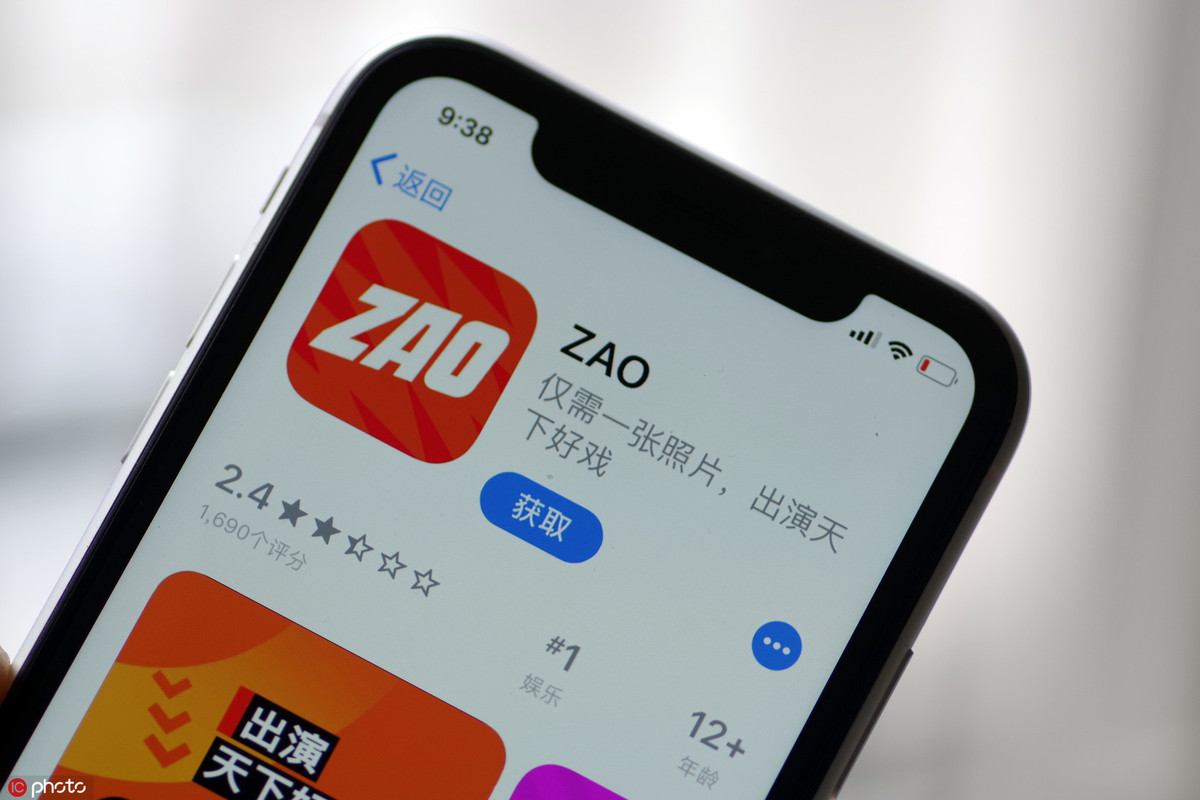Experts: More data security moves likely


Enhanced regulatory oversight on data security is expected after Chinese face-swapping app ZAO came under fire over privacy concerns, experts said.
The Ministry of Industry and Information Technology has summoned social networking firm Momo Inc, which powers ZAO that lets users superimpose their face on those of celebrities and produce synthesized videos and emojis.
The ministry asked the company to collect user information abiding by relevant rules and regulations, revisit respective user agreements and protocols, and strengthen the protection of internet data and individual user information, it said in a Weibo post on Wednesday.
It also required the company to strengthen security evaluation of new technologies and new businesses, and take effective measures to prevent the platforms from being used as vehicles for internet fraud.
The ministry added that its internet security management bureau will further strengthen its guidance and supervision of companies to comply with legal rules for data and personal information protection.
ZAO, which means "make" or "manufacture" in Chinese, allows users to upload a selfie and then place that picture on top of celebrities such as Marilyn Monroe and Chow Yun Fat using AI technologies. Savvy social media users started posting videos starring themselves in footage taken from blockbuster movies or hit TV series over the weekend.
But it quickly drew just as much criticism over privacy concerns. Users will need to agree to clauses that allow the company to use their original photos, synthesized photos and videos for free and for good on a global scale.
The company also retains the right to make modifications of these photos using technologies, and allegedly gave ZAO permission to use their faces for marketing purposes.
The facial pictures uploaded to ZAO belong to "personal sensitive information" that should not be leaked, illegally provided or abused. Therefore the above clauses represent a violation of a national standard on personal information and impeachment of user privacy, said Wang Zheng, a lawyer at Zhejiang Taihang Law Firm.
"Another risk is on intellectual property rights. ZAO stated that the majority of synthesized videos or emojis submitted by users do not have intellectual property rights. That has literally prevented the platform from any legal disputes should any problems occur, with users bearing all the responsibilities," Wang said.
During the World Artificial Intelligence Conference in Shanghai that concluded on Saturday, Tencent Holdings Ltd Chairman Pony Ma, who has proposed the principles of "understandable", "controllable""usable and reliable" in the adoption of AI, said there is a pressing need for governance over AI as technologies are reshaping lives and revolutionizing industries in an unprecedented manner.
"While ZAO's protocols are highly controversial, the app itself seems to really make people happy," said Cheng Mingxia, assistant dean of Tencent Research Institute.
"This is the kind of challenge facing future science and technology applications … and it requires the joint efforts of the society, the government as well as the family."
To avoid tightened supervision smothering the healthy development of technology, laws and industry regulations should be detailed and updated in due time, said Chen Tian, vice-director of the data security research department at China Academy of Information and Communications Technology.
"In the upcoming 5G era, smart devices aren't just confined to mobile apps but a number of industrial apps and internet-connected cars. That means the wealth of information being collected is unprecedented," Chen said.



































